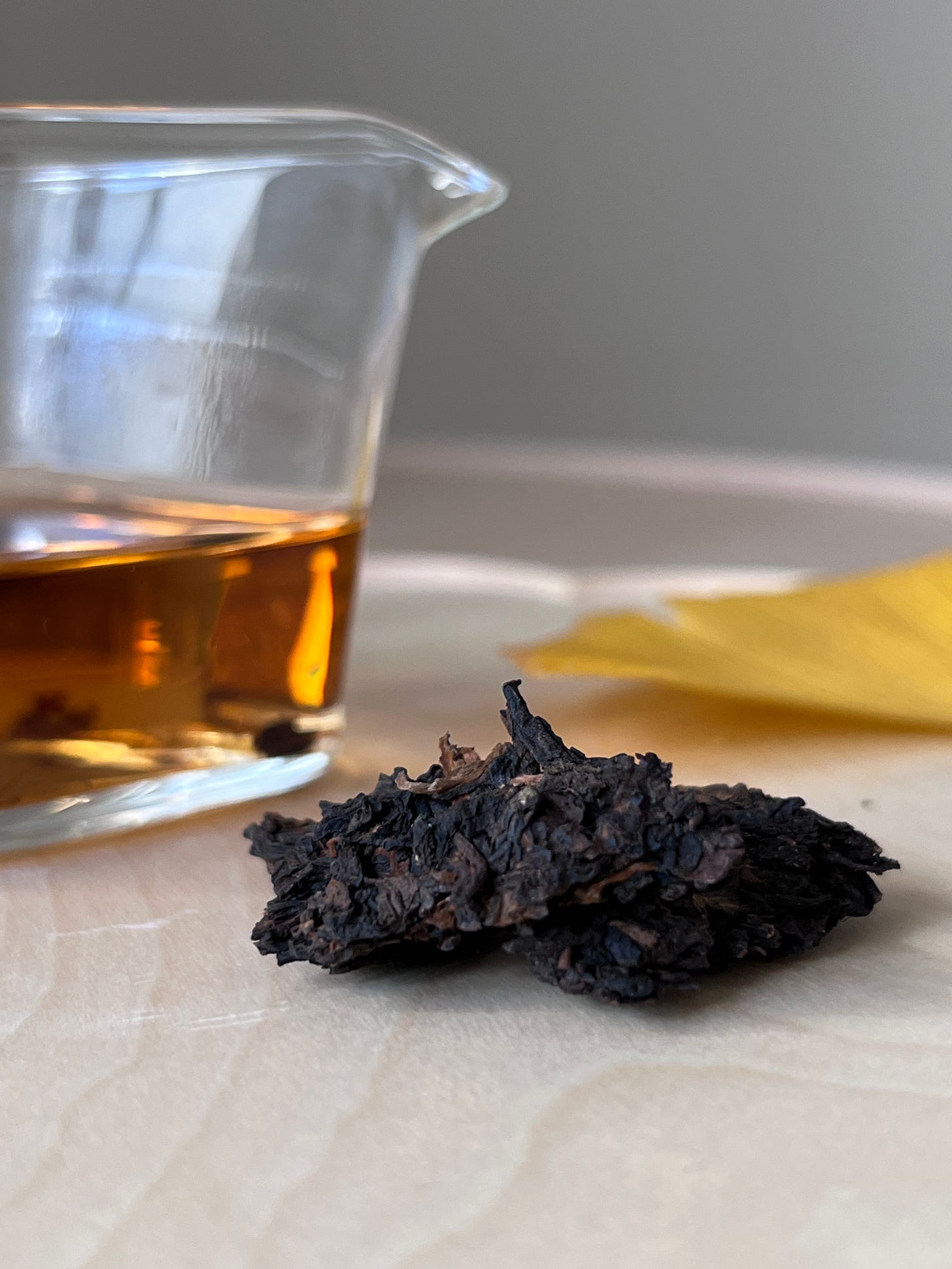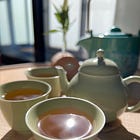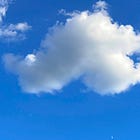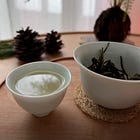“In the midst of winter, I found there was, within me, an invincible summer. And that makes me happy. For it says that no matter how hard the world pushes against me, within me, there’s something stronger - something better, pushing right back.”
-Albert Camus, French philosopher and writer大雪: 鱖魚群 / Greater snow: Salmon gather and swim upstream (72 microseasons)
What an (un)lucky year.
My youngest has been home with me for more than 5 days now. Sudden high fever that kept lingering on even with medications. The fever now turned into other cold symptoms. Two months ago, the same thing happened. But this time, she had to miss her school Christmas play. A performance she has been practicing for months!
That bad déjàvu feeling all over again.
Earlier this year, my eldest daughter was also severely sick for a week. To the point that she had to miss her good friend’s birthday party, just before we moved her to a new school.
With sickness, everything gets canceled. Performance, party, and sanity.
In January, I was hospitalized. And I’ve had countless episodes of falling ill with small and big sickness after that. My husband, thankfully, has been mostly spared from this nightmare. But now in his hometown for yet another funeral of an elderly relative.

Do we truly care for caregivers?
"There was a time even in the West when motherhood and bearing and rearing children were not despised by society or by the women themselves." - My Country and My People, 1935, by Lin YuTangThis year made me think of caregivers.
The importance of these selfless guardians, like the invisible roots in the soil.
People praised the majestic tree trunk, the golden shimmering leaves in autumn. But its the sprawling roots - anchoring tree to the ground - that is most essential but most often forgotten. And under-appreciated.
Parents. Stay home parents. Parents without support system. Parents caring for their sick child. Parents taking care of differently abled children. Those single parenting. The mid-aged parents taking care of elderly parents while worrying about kids and making a living. Nurses. Caregivers at elderly homes and caregiving centers. Teachers in childcares and in primary schools, managing more than a dozen of kids (and you know, kids have big and complex emotions).
They are the givers, selfless individuals providing care for those unable to care for themselves. Often unpaid, sometimes underpaid, rarely well compensated. Low regarded and often considered low status.
The loneliness, the feeling of helplessness, the fear of messing up. The bottled-up feeling that a caregiver bears which is a lot of mental load for an individual to take on.
Caregivers are the ones needing a lot more support - from the policy space to regular socio-emotional support, including anchoring practices like meditation. Caregivers need support to hold space, to somewhat stabilize their day with much-needed islands of calm.
And then you read about Japan actively recruiting nursing care staff from Southeast Asia. Soon to be followed suit in other parts of Asia with demographic changes.
A society often realizes the most essential things only when faced with a crisis.
The winter I found summer
2024 has been an (un)lucky year alright. But it turned out to be my most transformative year. It charted a different life trajectory for me.
In my pain, I turned to the arts, nature, spirituality. Cooking for my family even if it means 1-2 hours in the kitchen, to my great surprise.
This year, I encountered wise people and teachers who have inspired me along the way. I begin to study and explore my roots as a Chinese diaspora born in Malaysia.
I returned to the simple practice of writing regularly, publishing several articles.
This is my 30th post since I started 72 Seasons of Tea seven months ago on April 30. I write for myself across topics I can most resonate with - tea, meditation, nature, culture, spirituality, social change.
One of the most meaningful moments from this Substack is that I get to interact with some of you in private. Your comments, the follow up messages, encouragements, ideas, book suggestions - I treasure them all.
Below, I am highlighting one of the most inspiring books I have read this year which I am again re-reading. With thanks to the introduction by
, Substack author of .My Country and My People (1935) by Lin Yutang
A wonderful introduction to the Chinese psyche before 1949’s Kuomintang retreat to Taiwan following the creation of the People’s Republic of China. As Pearl S Buck wrote in her introduction in 1935, this book is “written by a Chinese, a modern, whose roots are firmly in the past, but whose rich flowering is in the present”.
This book taught me to look at history far and wide, taking current headlines that we are being pushed at with a pinch of salt.
Here are my selected favorite quotes from the book:
On living - Confucianism and Taoism
In these three thousand years they have had plenty of time to drink tea and look at life quietly over the teacups, and from the gossip over the teacups they have boiled life down to its essence.
The Chinese are by nature greater Taoists than they are by culture Confucianists.
The Confucianist in us builds and strives, while the Taoist in us watches and smiles. Therefore when a Chinese scholar is in office he moralizes, and when he is out of office he versifies, and usually it is good Taoistic poetry.
The sum of all human wisdom and the problem of all human knowledge is how man shall remain a man and how he shall best enjoy his life.
The Confucian conception of man’s place in nature is that “Heaven, earth and man” are regarded as “the three geniuses of the universe”.
Confucianism is essentially an urban philosophy, while Taoism is essentially rural.
Taoism stands for the childish world of wonder and mystery for which Confucianism fails to provide.
Taoism is the romantic school of Chinese thought, as Confucianism is the classic school. Firstly, it stands for the return to nature and the romantic escape from the world, and revolts against the artificiality and responsibilities of Confucian culture. Secondly, it stands for the rural ideal of life, art and literature, and the worship of primitive simplicity. And thirdly, it stands for the world of fancy and wonder, coupled with a childishly naive cosmogony.
In Chinese, these two opposite attitudes are called “entering the world” and “leaving the world”. Sometimes these two points of view struggle for supremacy in the same man and at different periods in his life.
We do not know a nation until we know its pleasures of life, just as we do not know a man until we know how he spends his leisure. It is when a man ceases to do the things he has to do, and does the things he likes to do, that his character is revealed.On arts, nature, solitude
She (China) has a literature, a philosophy, a wisdom of life entirely her own; and in the realms of art, she soared where others merely made an effort to flap their wings.
One must feel with the pulse of the heart as well as see with the eyes of mind.
For to be close to nature is to have physical and moral health. Man in the country does not degenerate; only man in the cities does.
For human happiness is so precarious that the retreat to nature and simplicity is the best safeguard for it.
Political weakness and disgrace somehow coincided with artistic refinement, and southern China was ruled in these periods by kings who could not keep their thrones secure but could write exquisite verse… The Emperor Huichung of the Southern Sung Dynasty was also a noted painter (see previous post).
In China, the art of living is one with the arts of painting and poetry. First we look at the hills in the painting. Then we look at the painting in the hills. The imagination, by its contemplation of sorrow and poverty, turns sorrow and poverty into beauty, as we see so clearly in Tu Fu’s poetry.
For beauty resides in the huts, in the grasshoppers, in the cicada’s wings, and strangest of all, in the rocks, too.
If you do not run away from the raindrops, you will find them most beautiful - Hsiao Shihwei at the end of Ming Dynasty.
The poet’s eye is the painter’s eye, and painting and poetry become one.
The Chinese artist is a man who is at peace with nature, who is free from the shackles of society and from the temptations of gold, and whose spirit is deeply immersed in mountains and rivers and other manifestations of nature.
A Chinese artist must absorb in himself the best of human culture and nature’s spirit.
The retreat to the mountains is a search for grandeur in nature. The recluse’s passion for leisure and solitude, which characterizes all forms of Chinese art. Consequently, its characteristic is not supremacy over nature, but harmony with nature.
All problems of art are problems of rhythm. Calligraphy, as representing the purest principles of rhythm and composition, stands in relation to painting as pure mathematics stands in relation to engineering or astronomy.
Every horizontal stroke is like a mass of clouds in battle formation, every hook like a bent bow of the greatest strength, every dot like a falling rock from a high peak, every turning of the stroke like a brass hook, every drawn-out line like a dry vine of great old age, and every swift and free stroke like a runner on his start. - Calligrapher Wang Hsichich 327-379 on the art of calligraphy and imagery from natureOn the family system
Among the cultural forces making for racial stability must be counted first of all the Chinese family system, which was so well-defined and organized as to make it impossible for a man to forget where his lineage belonged. This form of social immortality.
There was a time even in the West when motherhood and bearing and rearing children were not despised by society or by the women themselves. A mother seems to fit in with her position, a very highly honoured position, in the family. To bring a child and guide him with her mother’s wisdom into manhood is enough work for any human being in a sane-minded society.
On the social-cultural systems
For one either loves or hates China.
Another cultural force making for social stability was the complete absence of established classes in China, and the opportunity open for all to rise in the social scale through the imperial examination system. A system which started in the T’ang Dynasty.
Mellowness…It is the old culture of an old people who know life for what it is worth and do not strive for the unattainable. As a Ming scholar puts it, “by losing that pawn, one wins the whole game”.
But if the Chinese people are unique in their patience, they are still more justly famous for their indifference… a product of social environment.
Indifference has a distinct “survival value” in China. Indifference is not a high moral virtue but a social attitude made necessary by the absence of legal protection.
We are great enough to start successive waves of revolutions, but we are also great enough to compromise and go back to the previous patterns of governments.
Human life moves on, therefore, on the line of least struggle and least resistance. This develops a certain calmness of mind, which enables one to swallow insults and to find oneself in harmony with the universe.
The family-minded Chinese must be changed into social-minded Chinese.
On the difference between China and the West
For a Westerner it is usually sufficient for a proposition to be logically sound. For a Chinese it is not sufficient that a proposition be logically correct, but it must be at the same time in accord with human nature.
The difference between China and the West seems to be that the Westerners have a greater capacity for getting and making more things and a lesser ability to enjoy them, while the Chinese have a greater determination and capacity to enjoy the few things they have.
For a time yet there will still be ugliness and pain, but after a while there will be calm and beauty and simplicity.Thank you, my 109 subscribers!
Channeling Zig Ziglar’s quote on F.E.A.R., instead of Forget Everything and Run, I wish you the courage to Face Everything and Rise in 2025.
See Instagram | See LinkedIn | See previous posts | About








Love this post. Saved it for rereading! There's so much to think about and unpack in it. Your mention of caregivers is a gentle reminder to me. I should call my father and grandma more...
Glad you like Lin Yutang's book. I can say that he was one of the few Chinese literary figures who had a clear mind in the great confusion of the 20th century. Admirable yet approachable humorist.
Reading Lin Yutang's assessment of China, oddly, made me think about Lu Xun. What a sharp contrast they make.